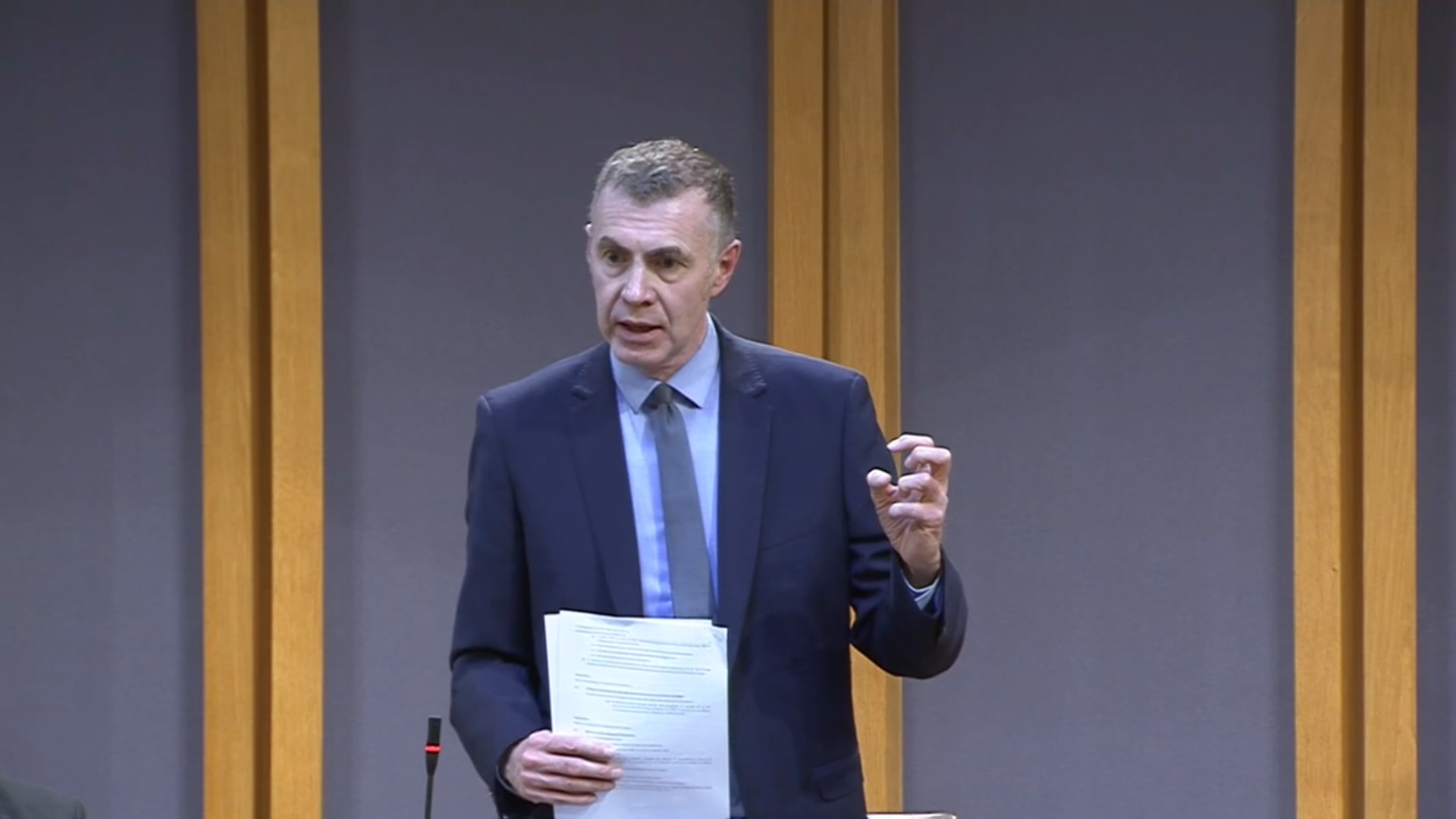
On 26 June in the Senedd, Plaid Cymru MS Adam Price put forward proposals for a Community Energy Benefits Bill that would mandate local ownership of renewable energy development projects, as advocated in our landmark report Sharing Power, Spreading Wealth. Price’s proposed Bill is a Members Bill, meaning it will likely need support from Welsh Government Members to pass into legislation.
Adam Price outlined the weight of past extraction on communities in Wales and stressed the need for renewables to depart from this model, noting that a large amount of wealth produced in Wales leaks out of it to other countries, some of which enjoy nationalised energy systems, without any benefits to local communities:
‘Profit is then for the benefit of taxpayers and citizens of another country, rather than those of Wales. And really, what we’re trying to achieve with this motion and the Bill that is suggested is to move us to adopt a different model in Wales, which is locally owned, where the benefit is retained within the community.‘
Mr Price went on to note the insufficiencies of the current legislative framework, stressing that a lack of mandated community ownership had led to an inconsistent approach which he contrasted with Denmark’s, where a 20% community ownership threshold applies.
Several members including Carolyn Thomas MS (Labour), Delyth Jewel MS (Plaid), Samuel Kurtz MS (Cons), Luke Fletcher MS (Plaid) and Lee Waters MS (Labour) welcomed the debate. Delyth Jewel remarked that ‘so many communities end up feeling that energy developments are being imposed on those areas, rather than that developments and decisions are made jointly with them and for their benefit’.
Lee Waters MS echoed support for the debate, but, drawing on our flagship work on renewables Re-energising Wales, stated that this project needed to be balanced against various ‘constraints and points of friction’, adding:
‘We know, and have rehearsed many times in this Chamber, about the role that the Crown Estate needs to play to make sure that Wales benefits from the enormous wealth that lies just off our shores, but it’s going to take more than declarations to get that done.’
Welsh Government’s local and shared ownership policy can only deliver limited redistribution and retention of economic prosperity for local people, and does not reflect the way wealth is allowed to flow out of Wales.
Cabinet Secretary for Economy, Energy and Welsh Language Jeremy Miles also countered the proposal for a bill with the objection that ‘the danger that we face with legislation as it stands, in that it mandates local ownership, is that we may deter the essential investment that we need and that will benefit all communities.’ He added: ‘The work that the Development Bank of Wales can do to help projects to secure local ownership, the role of Trydan Gwyrdd Cymru — these are two examples of the kind of mix of interventions that the Government has underway, as well as encouraging investment in skills, jobs, supply chain and in biodiversity. We want to attract that kind of investment that supports all our communities in Wales.’
Our report Sharing Power, Spreading Wealth, written by Lydia Godden, calls for clearer direction to commercial developers and explores mandating local and community ownership within commercial energy projects for a more equitable distribution of benefits. The report’s key recommendations include reforming community benefit funds, ensuring a minimum of 30% of community ownership on Trydan Gwyrdd Cymru’s future developments, compelling all new commercial renewable projects above 5MW to have a minimum level of 15% of community and local ownership by 2028 and establishing a Wales Wealth Fund.
We argue that the Welsh Government should work with developers to explore and incentivise a range of community-ownership models, reducing upfront financial barriers that may currently limit economically disadvantaged communities from community ownership.
This approach helps to ensure that Wales meets its Net Zero in an equitable way, redistributing wealth to communities and accelerating consent to new projects, as communities are brought along on the journey to Net Zero.
Currently, Welsh Government’s local and shared ownership policy can only deliver limited redistribution and retention of economic prosperity for local people, and does not reflect the way wealth is allowed to flow out of Wales. It allows for a disparity in approach to shared ownership and leaves power largely in the hands of developers. Approaches like Denmark’s have shown that mandating community ownership gets results, and we will continue to advocate for Welsh Government to follow this example.
Read Sharing Power, Spreading Wealth on our website today.
Syniadau uchelgeisiol, awdurdodol a mentrus.
Ymunwch â ni i gyfrannu at wneud Cymru gwell.

